I consider myself a fairly experienced and knowledgeable mother. After all, I do have three children and am due with number four any day now. However, when I heard the term golden hour in relation to birth, I was unfamiliar and wanted to learn more about it so I can take advantage of it with my 4th child. I thought this would be the perfect time to do some research so I could become informed and pass the information along to other soon to be mommies.
What I learned about golden hour is so incredible, and I now want to make sure that all moms know about it. To put it simply, the golden hour is the extremely important 60 minutes after birth that, if spent properly, can be a crucial bonding time between mother and child.
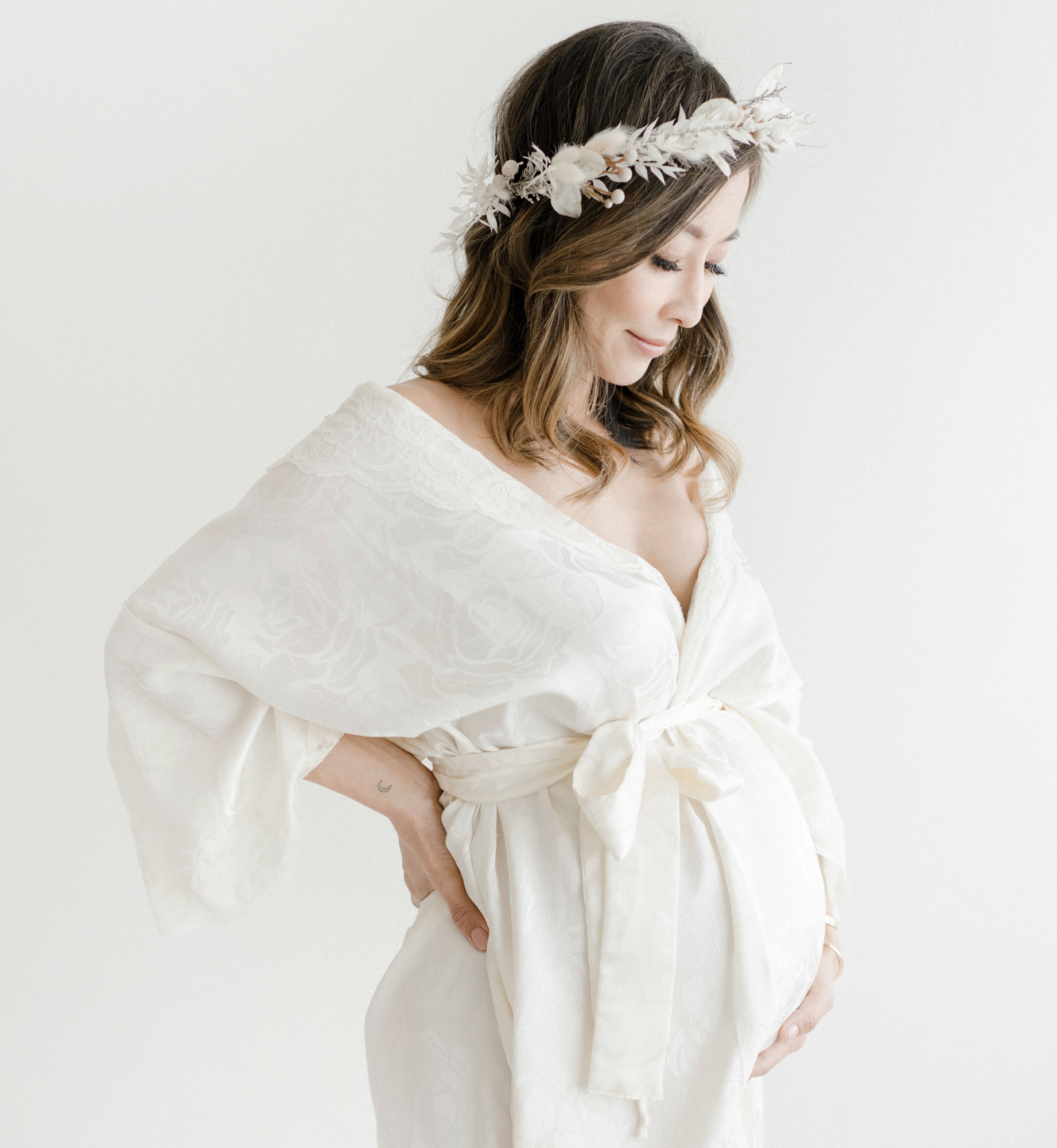
The golden hour should be spent with mom and baby skin to skin. According to The Magical Hour website, there have been many proven short and long term physical and psychological advantages to this special bonding time. Whether you have a vaginal delivery or cesarean section, the golden hour will benefit you and your baby. Towards the end of this post I will go into more detail of the benefits that come from the golden hour.
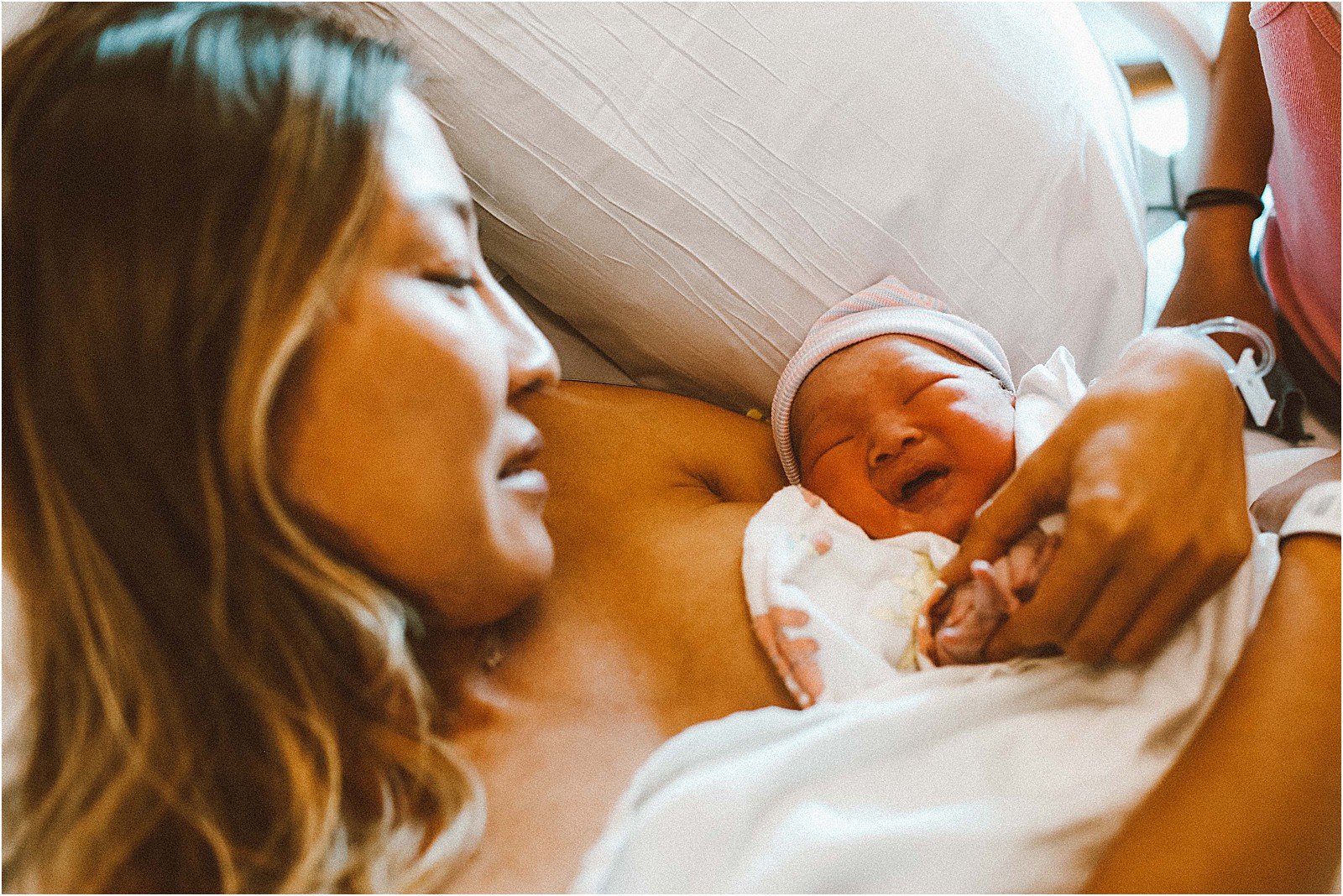
What is Golden Hour? The Hour After Birth
During the golden hour when a mother and baby are having skin to skin contact, there are nine stages that occur in a specific order. These stages are instinctive to the newborn and include various actions.
Stage 1: The Birth Cry
This cry will be distinctive, as it will be the first sound that you hear from your baby after being birthed. The cry occurs as the baby is receiving oxygen and their lungs are expanding.
Stage 2: Relaxation
The second stage in the golden hour occurs after the baby’s crying has stopped. During the relaxation stage, the newborn’s body will be completely relaxed, including their hands. So this is the time to have the baby’s skin with their mother’s skin. The baby should lay on the mom’s stomach with a warm blanket. This will help keep their body temperature warm.
Stage 3: Awakening
Stage three usually occurs about three minutes after birth. Here, the baby will begin to show small movements in their head and shoulders. You may also see he or she open their eyes.
Stage 4: Activity
Activity is the fourth stage in the golden hour. This stage begins about eight minutes after labor. At this time, newborn babies are making more obvious mouthing and sucking movements. This is also known as the rooting reflex.
Stage 5: Rest
At this point, the newborn may have already taken several rests. A baby’s body has gone through a great ordeal to enter the world and will often take breaks between small activities throughout the golden hour.
Stage 6: Crawling
Of all the stages, this is the one I am most in awe of. It is when a newborn performs something called the breast crawl. A baby has a stepping reflex. This reflex allows him or her to move towards their mother’s breast. This movement might resemble a crawl, slide, or even a leap. The crawling stage typically will occur around 35 minutes after birth.
Stage 7: Familiarization
I like to think of this as the moment of curiosity. In stage seven of the golden hour, you can see lots of movement for about 20 minutes. The smells, sounds, and tastes of the baby’s mom is the only thing that really seems familiar to a newborn. So, during this stage the baby may touch, smell, or lick the mother’s hands, mouth, and/or breast. They may do the same things to their own hands. At this time, the newborn typically will make small noises to get their mother’s attention and look around at whoever is in the room. Pretty amazing for someone who hasn’t even been in the world for an hour!
Stage 8: Suckling
The suckling stage of golden hour is usually at the end of the hour. It is the time that the earliest attempts at breastfeeding begin. During this stage, the baby can self attach and suckle.
Stage 9: Sleep
Around an hour after birth, the baby will be ready to fall asleep. It is best to allow them to continue to rest on the mother’s chest.
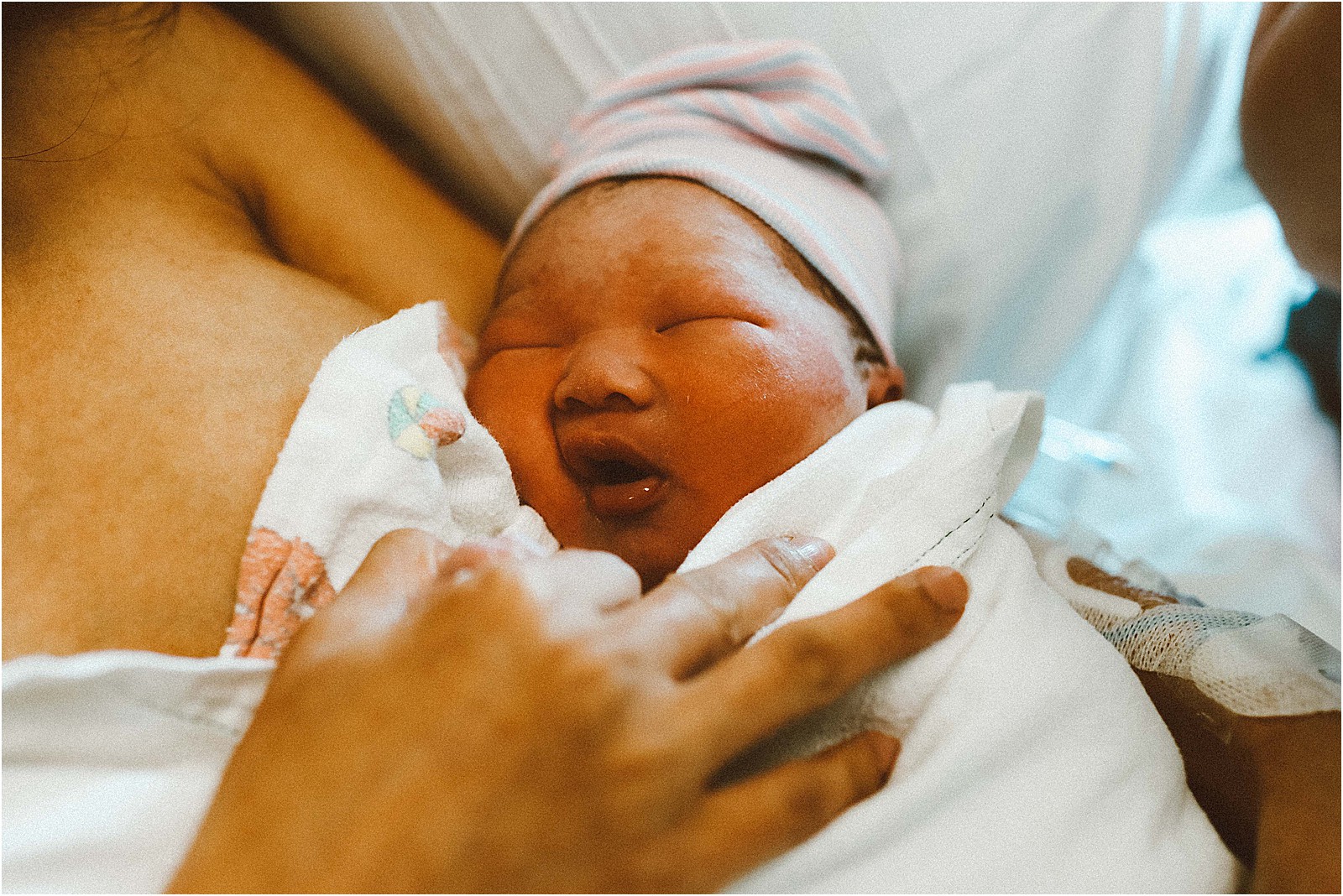
10 Benefits of the Golden Hour
There are several benefits to a mother and newborn experiencing skin to skin contact throughout all of the Golden Hour.
- The baby’s body temperature will stay warm
- Skin to skin with their mother will keep the baby calm
- It encourages baby-led breastfeeding
- Milk supply can be increased
- The newborn can hear their mother’s heartbeat
- The baby’s breathing and heart rates are stabilized
- Delayed cord clamping: this allows your baby to receive oxygen from the placenta while adjusting to breathing with their own lungs.
- Decreased infection
- Promotes mother/baby bonding
- If a baby gets used to skin to skin contact early, your partner will be able to partake in this bonding experience in the following weeks.
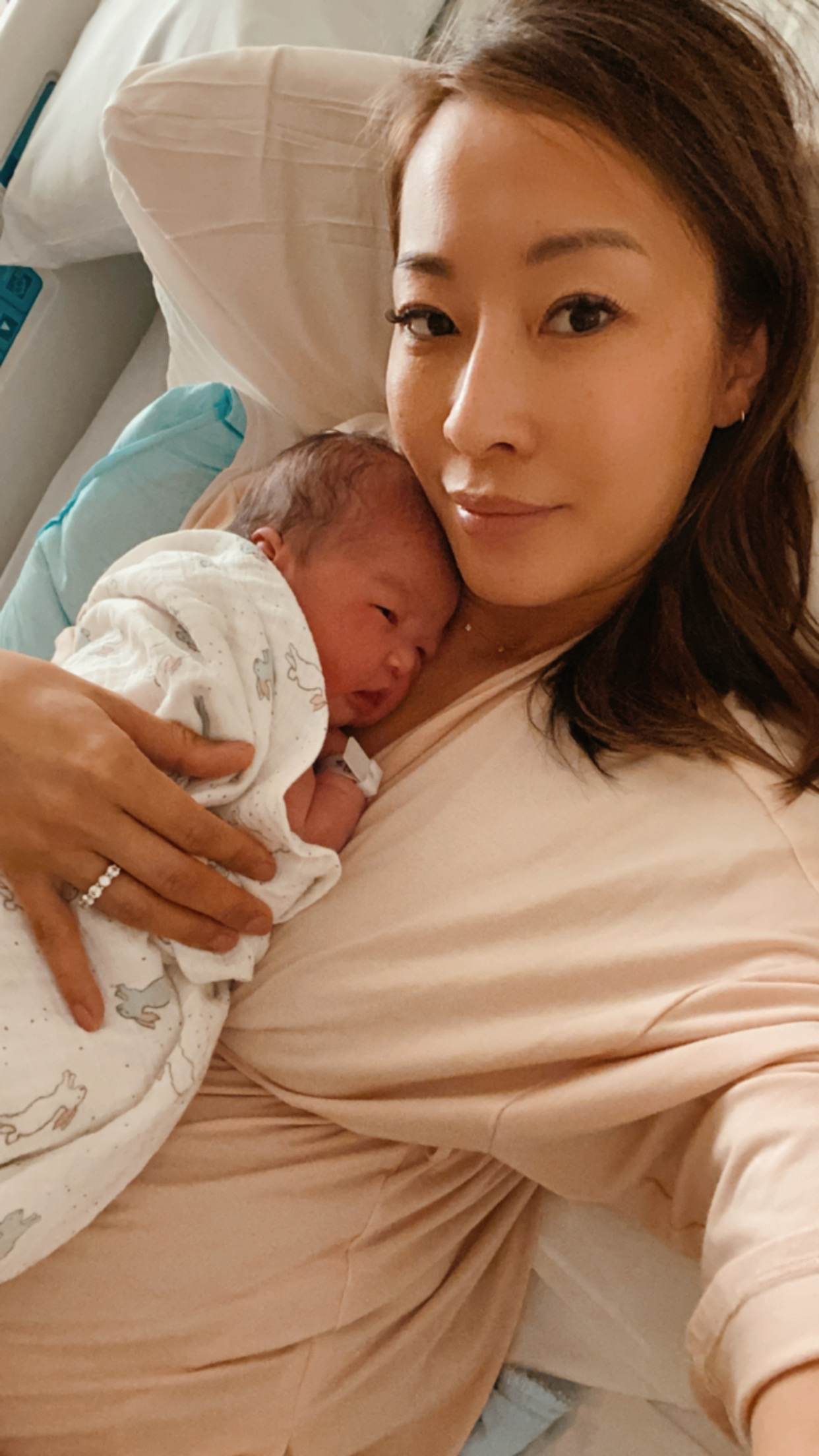
Tips For Golden Hour
Each of the nine stages includes a baby’s natural reflexes. It is a natural part of birth, and so we should allow them to act on those instincts. According to Birth in Motion, all these initial instincts stay intact for the first 28 days. So this initial skin to skin contact can/should be repeated often.
Now that you know the benefits of golden hour for you and your baby, I suggest talking to your doctor and birthing team about it before giving birth. This discussion will make your wishes known.
Here are some tips to keep in mind to ensure that you are able to take full advantage of this bonding time after birth:
- Keep the lights dim
- Place the baby on the mother’s stomach
- Do not wash your chest until golden hour is over. Your baby may be more likely to crawl to your breast if the smell is familiar.
- Keep your room private during the hour after birth. I suggest only you, your partner, and your baby. The nurse or doctor will be happy to let family members know they need to wait.
- Ask anyone in the room to use whisper voices. A newborn’s sense of hearing is extremely sensitive at birth.
- If you have a cesarean section, all the nine stages can still apply to you. If you are not able to hold your baby immediately after birth, have your partner have skin to skin time. As soon as you are in the recovery room, place your baby on your chest.
- Lots of routine tests and procedures occur right after the born is born. These can be done while baby is on their mother’s chest, or be delayed until after the golden hour. Of course, emergency situations will be a different story.
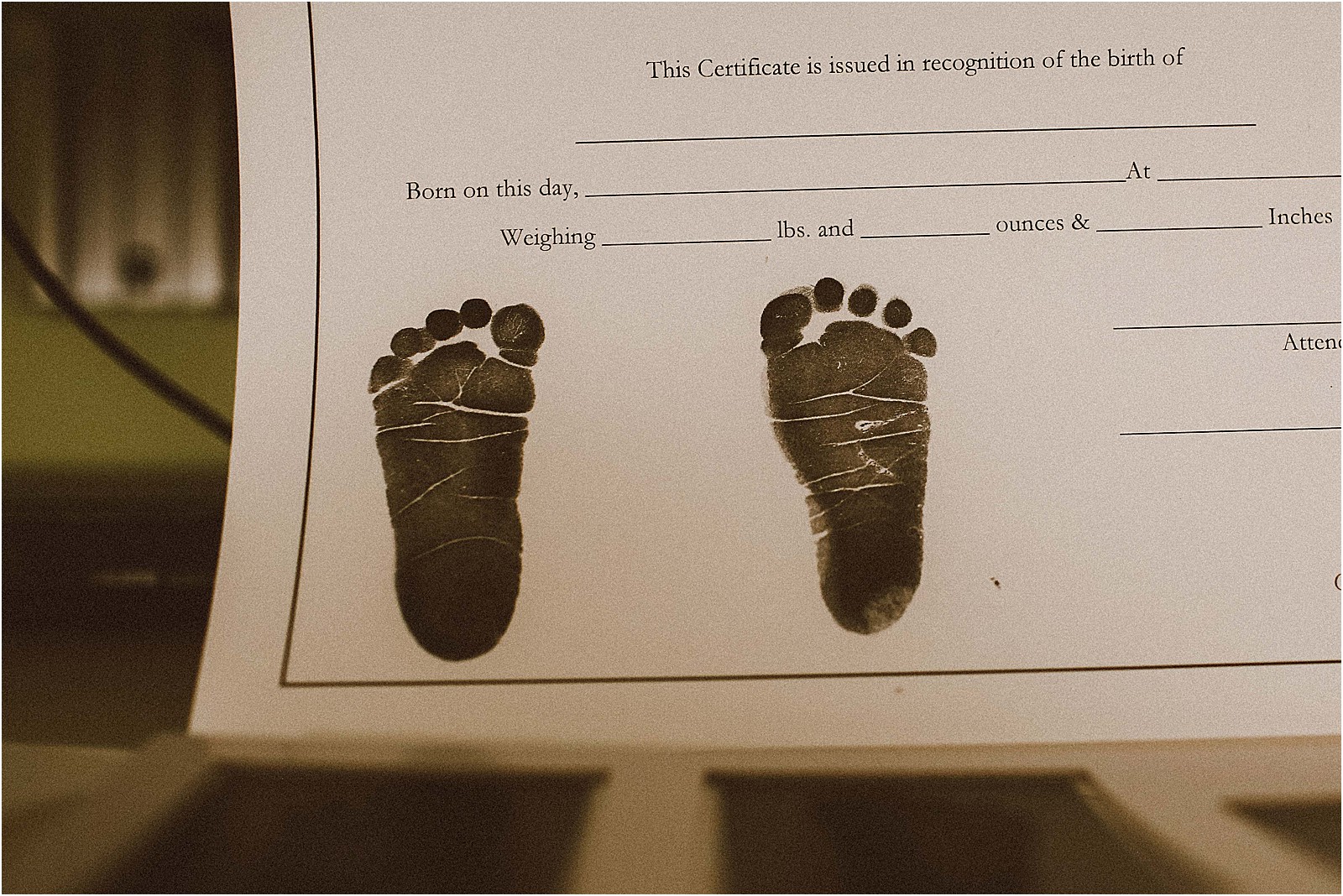
You can check out my labor & delivery / golden hour story here. If you are expecting a baby soon, check out my hospital bag checklist!


a good mum knows always the best for the kids.
that mommy diary is just awesome
xoxo
franzi powder brows
https://powderbrows.at